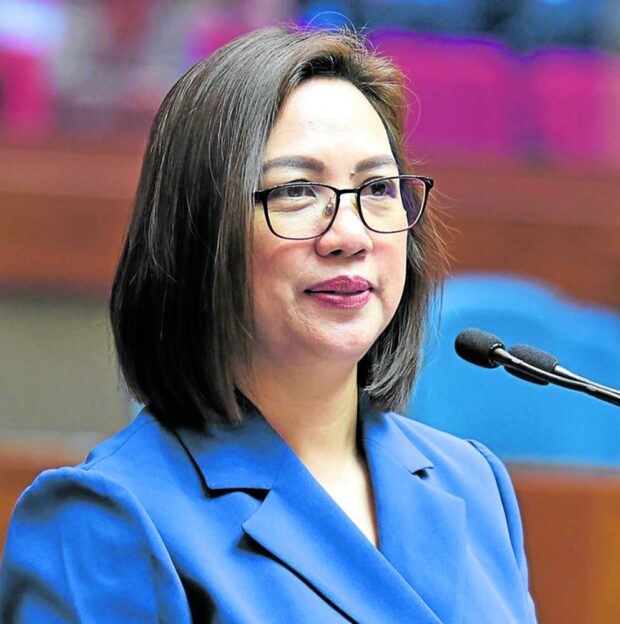
House Deputy Majority Leader Janette Garin —photo from the House of Representatives FB page
MANILA, Philippines — A thorough investigation on the Philippine Health Insurance Corp.’s (PhilHealth) P15.5 billion advance payments to hospitals under the Interim Reimbursement Mechanism (IRM) program was pushed by lawmakers after they questioned its legality and transparency.
To recall, the controversial IRM was implemented during the administration of former President Rodrigo Duterte.
READ: P15 billion went to PhilHealth ‘syndicate’ – whistleblower
Among the legislators who questioned the program—a system that advanced P15.5 billion in funds to private and government hospitals at the height of the COVID-19 pandemic—was Gabriela Party-list Rep. Arlene Brosas.
“The allegation was that P15.5 billion was allegedly pocketed by PhilHealth officials through fraudulent schemes. This budget was apparently loaned to businessmen and hospital owners when it was actually for the emergency fund for natural disasters,”Brosas said during the hearing of appropriations committee on Wednesday.
“Is there anyone already held liable? We can get their report,” she added.
For her part, House Deputy Majority Leader Janette Garin challenged the validity of using PhilHealth funds, which she pointed out “are not government funds but rather the contribution of members, as capital for private and government hospitals.”
“What happened? What the previous administration did was use the PhilHealth money. PhilHealth money is not government fund. That’s a fund came from PhilHealth members as it is an insurance mechanism),” and Iloilo representative said.
“The first question here is, was it legal? And I believe that is something this committee should look into because PhilHealth should take good care of its member’s funds,” she stressed.
Meanwhile, Marikina City Rep. Stella Quimbo, who presided over the hearing and panel vice chair, questioned how the state insurer chooses the facilities that received the IRM funds.
“We also had initial findings that the selection of facilities that received IRM did not seem to have any connection to the COVID patterns. So, who and how were these facilities chosen?” Quimbo asked.
However, the current officials were not able to answer the legislators’ questions, prompting them to summon previous officials with knowledge about the program’s implementation. The hearing also revealed that retired army general Ricardo Morales headed the state insurer when the initiative started.
In the meantime, Garin moved to order PhilHealth’s submission of documents on IRM and requested the officials’ names during its implementation, which the committee approved.